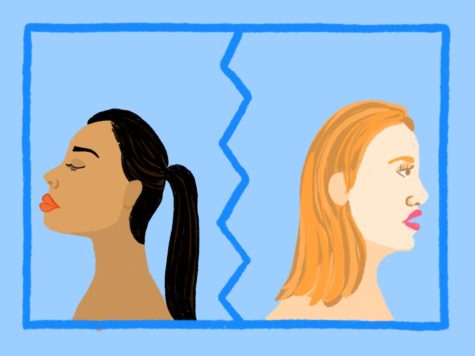OPINION | It’s not Western or Eastern views on therapy, but both
September 15, 2021

Heartbeat increasing minute by minute, sweat sliding off your skin, biting your fingernails leaving them shorter than before and thoughts running all over the place. “Is this what you call being anxious? No, you are fine. This will not last.”
That is what goes on when I get anxious.
Anxiety is a common, natural occurrence amongst humans. Even though I am not diagnosed with any form of clinical anxiety, I still must work to address my everyday anxieties. My little secret to vanquish anxious thoughts is to gather my thoughts and observe my surroundings. I focus on my breathing and tell myself “it is okay to worry, but focus more on the present.”
Like most things, this is easier said than done.
Why do I have such an internal, self-reliant way of dealing with my anxiety? It is partly in an effort to not see myself as a burden. I do not try to reach out and tell others my issues in hopes that someone can solve them. In my mind, I do not want others to feel the heavy weight that comes with anxiety. More importantly, the main reason why I rely on myself is explained through the deep-rooted split between Western and Eastern views on therapy and my involvement with both.
On the one hand, humans are social creatures, so we should share our thoughts to learn from each other and become better individuals. Equally, depending on oneself allows you to find and understand yourself holistically in order to become a healthier individual.
The Eastern world believes that “fixing” oneself is best achieved through exploring your inner self and surroundings. This side of the world relies on helping oneself naturally through yoga, meditation, tai chi and so on. The focus here lies within the inner body systems versus external treatment, as it is believed that an external treatment disturbs the body’s balance.
The Western world believes more in asking for help and relying on an external source. Here, treating anxiety requires a focus on the science behind mental health issues through medication, therapy and psychiatry.
Although these views are very different from one another, there are mental health treatments available that combine methods from the East and the West. Some Western therapists may recommend mindfulness and meditation, practices that originated in the East. As an Asian, I grew up with those ideologies and used them to understand myself better. In many ways, these experiences shaped my reliance on self-care oriented therapy.
Incorporating the Eastern views of my childhood education while growing up in a Western world, I came to understand the importance of using both methods in the treatment of mental health issues. Although I still have yet to reach out and ask for help, I hope to one day feel ready for this step. It is crucial to rely not only on oneself but also on others.
Just because one lives in the West does not mean the East’s view of therapy is not relevant or available, and vice versa. Ultimately, the purpose of both views is to help an individual through problems they may be facing. Both are equally necessary and should be equally accessible to those struggling, regardless of where they live.






















Leave a Comment